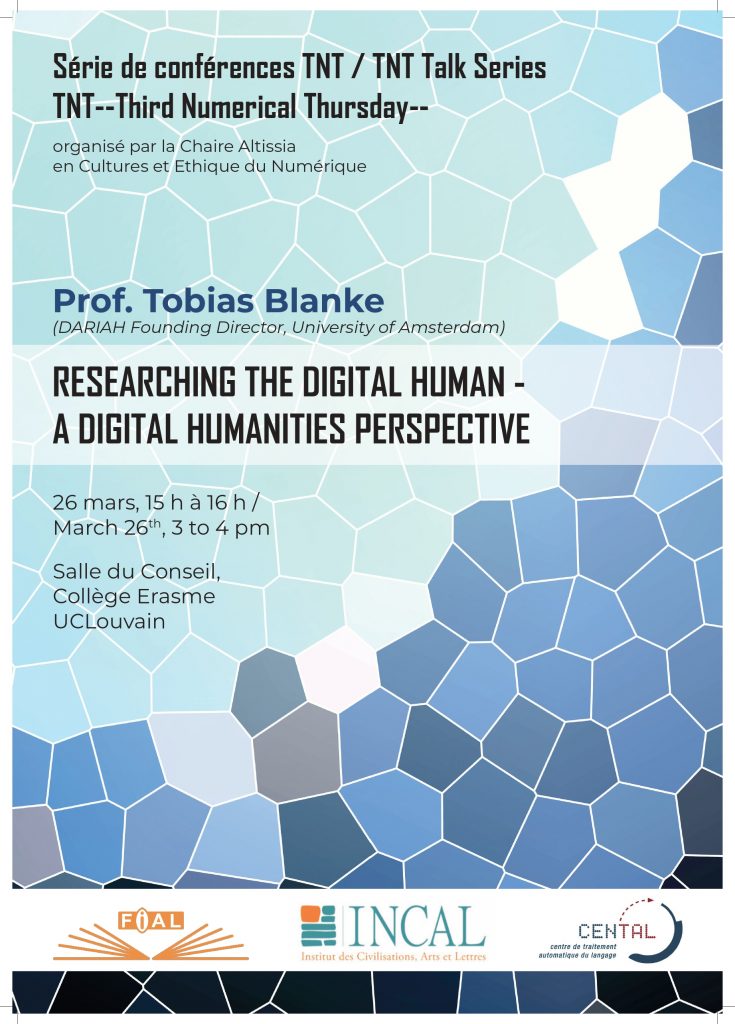
Nous avons le plaisir d’annoncer le deuxième événement de la série de conférences TNT (Third Numerical [Digital] Thursday):
Le professeur Tobias Blanke (Université d’Amsterdam, directeur fondateur de DARIAH) donnera une conférence sur
<<Researching the Digital Human–A Digital Humanities Perspective>>
le 26 mars de 15h00 à 16h00 dans la Salle du Conseil – Collège Erasme.
Au plaisir de vous y rencontrer,
L’équipe de la Chaire Altissia en Cultures et Éthique du Numérique
Tobias Blanke is University Professor of Artificial Intelligence and Humanities at the University of Amsterdam. Beforehand, he was Professor of Social and Cultural Informatics and Head of Department of Digital Humanities at King’s College London. His academic background is in political philosophy and computer science.
His principal research interests lie in the development and research of artificial intelligence and big data devices as well as infrastructures for research, particularly in the human sciences. Recently, he has also extensively published on critical digital practices and the engagement with digital platforms. Over the last 15 years he has been leading on several projects in the field, from, scholarly primitives to data mining and information extraction as well as big data and society, and social research at scale. Currently, Tobias Blanke has four active research grants and has won well in excess of €6m worth of funding for his work.
Tobias has (co-)authored three books, over 50 journal articles and book chapters and numerous conference papers spanning traditional philosophy, computer science and digital studies and has won several prizes for his research including best paper awards at major international conferences. Tobias works on several international projects and committees. Most notably, he was one of the founding directors of the Digital Research Infrastructure for Arts and Humanities (DARIAH), and he still leads the joint research work for EHRI, a pan-European consortium to build a European Holocaust Research Initiative.
